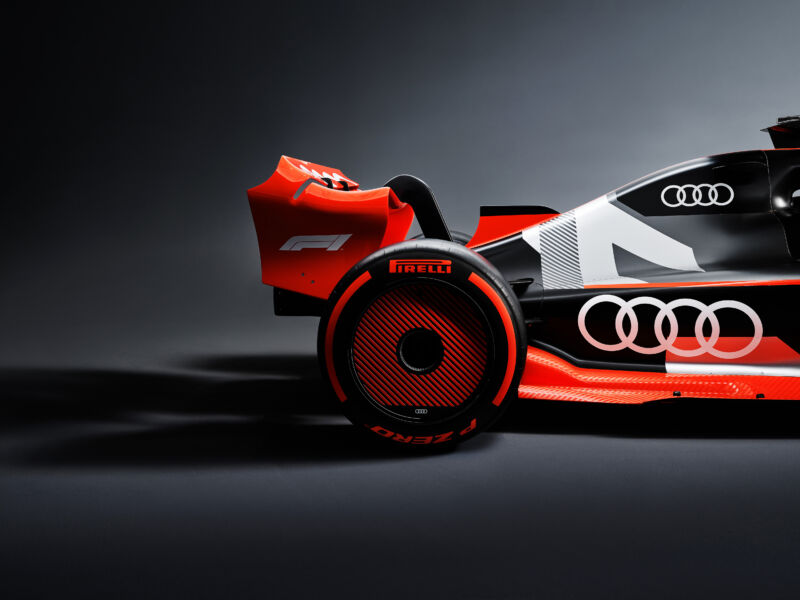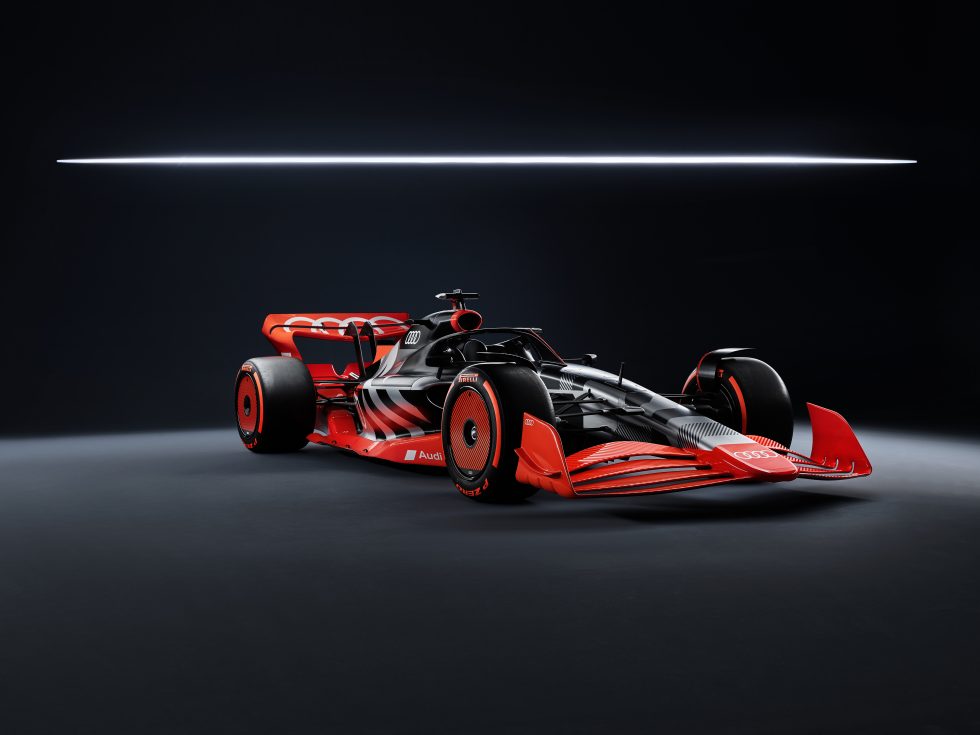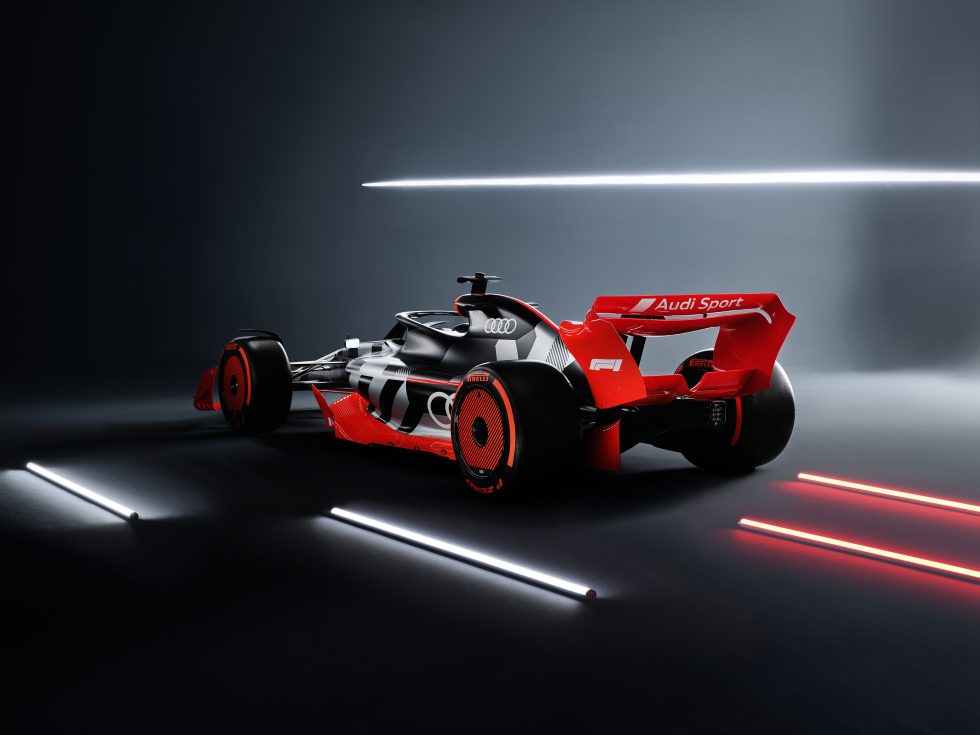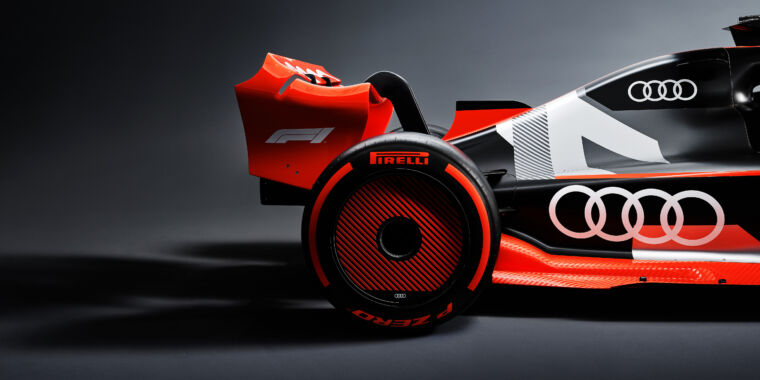
Audi
Audi will race in Formula 1 in 2026 with engines built at its Audi Sport factory in Neustadt, Germany. After years of rumors, Friday’s announcement was not entirely unexpected; in May then-Volkswagen Group CEO Herbert Diess confirmed it would enter the sport in four years when the next set of engine regulations come into effect.
VW Group will actually fund two F1 programs, one with Audi and a second with Porsche, which is in the process of acquiring a 50 percent stake in Red Bull Technologies. The Porsche announcement was supposed to take place at Red Bull’s home race in Austria in July, but the sport only ratified the 2026 engine rules in mid-August.
That deal may still need some i’s dotted and t’s crossed, but with the new rules now confirmed, Audi has taken the opportunity of this week’s Belgian Grand Prix to reveal its show car and to formally launch its F1 effort.

Audi
“In view of the major technological leaps that the series is making towards sustainability in 2026, we can speak of a new Formula 1. Formula 1 is transforming, and Audi wants to actively support this journey. A close link between our Formula 1 project and Audi AG’s technical development department will enable synergies,” said Oliver Hoffman, Audi’s board member in charge of technical development.
The new powertrains will continue to use a small-capacity turbocharged V6 gasoline engine, but without the fiendishly complicated and devilishly expensive hybrid system (known as MGU-H) that recovers energy from the turbocharger to store in the battery. Overall power output will remain at around 1,000 hp (745 kW), but now with almost half of that coming from a much more powerful electric motor (an MGU-K in F1-speak) that regenerates energy under braking and then sends it back to the rear wheels when needed.
Audi hasn’t said which team(s) will use its engines, but again it’s widely rumored that it will purchase a 75 percent stake in the Sauber team, which currently races under Alfa Romeo branding and with Ferrari engines. Based in Hinwil, Switzerland, Sauber was also owned and operated as BMW’s F1 team for some time, after a partnership with Mercedes-Benz in both F1 and endurance racing before that, so it’s no stranger to working with OEMs, particularly German ones.

Audi
Audi’s F1 program has sadly meant the end of a planned return to endurance racing with the new LMDh category (a fate that Porsche’s 963 has not suffered). “Formula 1 is the next major milestone in Audi’s motorsport history,” said Julius Seebach, Audi Sport’s managing director.








